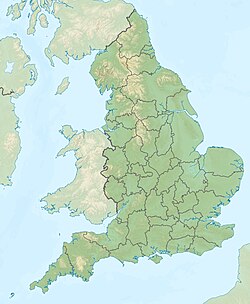Wiltshire (district)
Wiltshire | |
|---|---|
Clockwise from top: Salisbury Cathedral; Trowbridge Town Hall; Lacock Abbey; Stonehenge; and Chippenham Market Place | |
 Shown within the ceremonial county of Wiltshire | |
| Coordinates: 51°21′07″N 1°58′41″W / 51.352°N 1.978°W | |
| Sovereign state | United Kingdom |
| Country | England |
| Region | South West England |
| County | Wiltshire |
| Unitary Authority | 1 April 2009 |
| Government | |
| • Type | Non-metropolitan district |
| • Local Authority | Wiltshire Council |
| • Council Leader | Richard Clewer |
| Population (2022) | |
• Total | 515,885 (Ranked 11th) |
| Ethnicity (2021) | |
| • Ethnic groups | |
| Religion (2021) | |
| • Religion | List
|
| Time zone | UTC+0 (Greenwich Mean Time) |
| Postcode | |
| Post town | Bath, Salisbury, Swindon and Reading |
| Dialling code | 01249 and others |
| ISO 3166 code | GB-WIL |
| Police | Wiltshire Police |
| Fire | Dorset & Wiltshire Fire and Rescue Service |
| Ambulance | South Western |
| Website | www |
Wiltshire is a unitary authority area[2][3] in the ceremonial county of Wiltshire,[4] South West England. It was formed in April 2009 following the abolition of Wiltshire County Council and the districts of Kennet, North Wiltshire, Salisbury, and West Wiltshire. They were all replaced by Wiltshire Council,[5] which is based at County Hall in Trowbridge. The remaining part of the ceremonial county is the Borough of Swindon, administered by a separate unitary authority. In 2022 it had a population of 515,885.
Salisbury is the only city in the district and its largest settlement.[6] After the city, the next largest urban areas are Chippenham and Trowbridge.
History
[edit]Until 2009, Wiltshire had four districts – Kennet, North Wiltshire, Salisbury, and West Wiltshire[7][8] – together with the Borough of Swindon which had been made a separate unitary authority in 1997. Proposals were made to abolish the four districts and form one unitary area to cover the county of Wiltshire, outside the Borough of Swindon. In April 2009, Wiltshire Council assumed the roles and responsibilities of the four former districts.[9][10]
Main settlements
[edit]- Amesbury
- Bradford-on-Avon
- Calne
- Chippenham
- Corsham
- Cricklade
- Devizes
- Larkhill
- Ludgershall
- Malmesbury
- Marlborough
- Melksham
- Mere
- Royal Wootton Bassett
- Salisbury
- Tidworth
- Trowbridge
- Warminster
- Westbury
- Wilton
References
[edit]- ^ a b UK Census (2021). "2021 Census Area Profile – Wiltshire Local Authority (E06000054)". Nomis. Office for National Statistics. Retrieved 18 August 2024.
- ^ "Wiltshire Council". Business South. Retrieved 18 August 2024.
- ^ "Wiltshire Council - view and make Freedom of Information requests". WhatDoTheyKnow. 16 August 2024. Retrieved 18 August 2024.
- ^ "Lieutenancies Act 1997", legislation.gov.uk, The National Archives, 1997 c. 23, retrieved 21 August 2024
- ^ "Written evidence submitted by Wiltshire Council [OSG 034]". committees.parliament.uk. committees.parliament.uk. Retrieved 18 August 2024.
- ^ "Salisbury - Market Town". Visit Wiltshire. Retrieved 18 August 2024.
- ^ Archives, The National. "The Discovery Service". discovery.nationalarchives.gov.uk. Retrieved 18 August 2024.
- ^ Archives, The National. "The Discovery Service". discovery.nationalarchives.gov.uk. Retrieved 18 August 2024.
- ^ "This Order provides for the establishment, on 1st April 2009, of a single tier of local government in Wiltshire (article 3). The area of the county remains unchanged. A new district is created, with the same area as the county". www.legislation.gov.uk. www.legislation.gov.uk. Retrieved 18 August 2024.
- ^ "Plans for solar farm outside Salisbury refused by Wiltshire Council". Salisbury Journal. 16 August 2024. Retrieved 18 August 2024.









